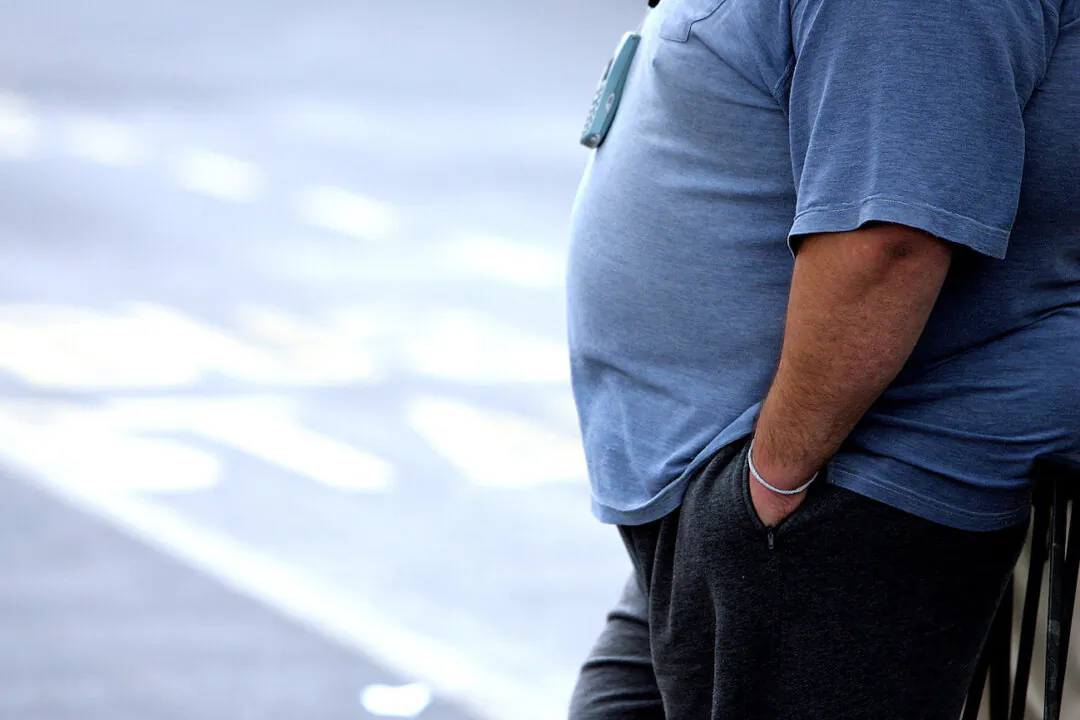Researchers have suggested cash could be used to incentivise people to lose weight after a study found a reward of £400, together with daily texts, was successful in helping obese men slim down.
Academics claimed this approach could be cost effective because obesity is a huge strain on the NHS, costing an estimated £6.5 billion annually.
A year-long government funded study, led by the University of Stirling and known as the Game of Stones, included 585 men from Bristol, Belfast, and Glasgow with an average body mass index of 37.7, placing them in the “obese” category.
The men were split into three groups, with one cohort told that £400 was being held for each of them in an account and would be transferred over at the end of the trial if they met their weight loss goal, but money would be deducted if they failed to meet their targets.
The daily texts they were sent included motivational messages including “walk a different route home to avoid the kebab shop,” and avoid “treat[ing] your body like a skip.”
The second group was sent the same messages but with no financial incentive, while the third group was only granted access to the weight management information.
Some 426 men included in the study logged their weight after 12 months. Men included in the financial incentives group received £128 each on average at the end of the study, with 27 receiving the full £400.
Those in the financial incentives group lost 4.8 percent of their body weight on average, compared to 2.7 percent in the group who were sent the same messages but with no financial incentives, with the third group losing just 1.3 percent.
Professor Pat Hoddinott of the Nursing, Midwifery, and Allied Health Professions Research Unit at the University of Stirling, led the study, which has been presented at the European Congress of Obesity in Venice.
‘Behavioural Economic Theory’
She said it was inspired by “behavioural economic theory which proposes that people are more motivated by the prospect of losing money than the prospect of gaining money.”
“However, not everyone can afford to deposit their own money, so we designed the Game of Stones trial, which uses an endowment incentive, where the money is put in an account at the start, allowing men on low incomes to join,” Ms. Hoddinott added.
She added that a text message-based plan costs less to administer as it requires fewer staff and other resources than traditional weight loss programmes.
Men classed as obese had helped to design the structure of the incentives and to compose the text messages, she added.
Ms. Hoddinott said the study was able to recruit men from areas “normally under-represented in weight management trials.”
She added: “Some 39 percent of the men lived in less affluent areas, 71 percent reported a long-term health condition, 40 percent reported two or more long-term conditions, and 29 percent reported that they were living with a disability.”
One quarter reported having a doctor-diagnosed mental health condition and a further 24 percent suffered from poor mental health, according to a scoring system.
The programme involved just four brief 10-minute weigh-ins over a year, which is far fewer than the weekly weigh-ins traditionally associated with slimming clubs.
Men Put Off by Traditional Slimming Clubs
Ms. Hoddinott said in a statement: “Losing weight can make people feel better, reduce their risk of many health problems such as diabetes, and helps the health service with their aim to keep men well. However, we know men often don’t like to go to traditional weight loss groups.”
“The research showed that offering cash incentives was a popular and effective way of helping men to lose weight. This initiative would be a low-cost solution for the health service to offer to men, requiring only four short weight appointments, and with money paid out only at the end to those who lose over 5% of their starting weight.”
Funded by the National Institute for Health and Care Research through the Department of Health and Social Care, Stirling University conducted the research in partnership with the University of New Brunswick, Canada, University of Aberdeen, University of Glasgow, Queens University Belfast, and the University of Bristol.
Participants received £50 if they lost 5 percent of their body weight within three months and another £150 for losing 10 percent within six months. The final £200 was given if they kept this weight off for another six months.
A number of previous studies have shown that financial incentives can prove successful in motivating obese people to lose weight.
The 2021 Health Survey for England found that 25.9 percent of adults in England are now classed as obese, with men more likely to be overweight or obese than women.
The NHS has not announced plans to roll out the the cash incentives, but Professor Frank Kee from Queens University Belfast, a co-researcher for the Stirling study, said in a statement: “Given the huge cost imposed upon the health service of overweight and obesity, and their consequences, we believe that investing in a service like this could pay for itself over the long term if the impact we observed in the trial is sustained. We are currently examining this health economic question in more detail.”
PA Media contributed to this report.



